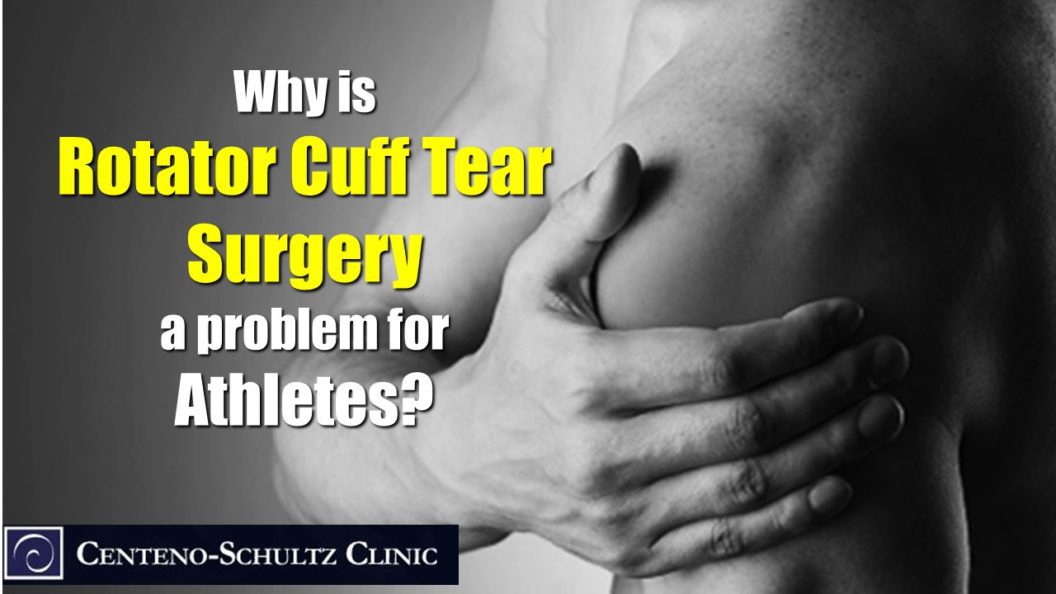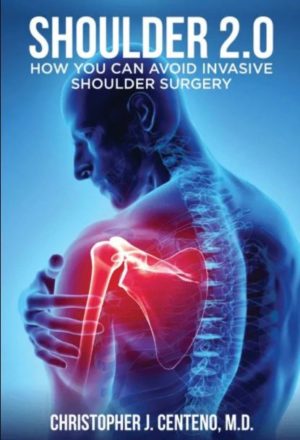Rotator cuff tears are very common in professional athletes, particularly those who play sports that involve throwing, such as basketball and baseball. So with the game and a career on the line, you’d think the world of traditional orthopedics would have an effective noninvasive solution to treating these players. After all, they’ve worked hard to achieve their pro-level dreams, and now a rotator cuff injury is threatening their success.
Unfortunately, however, if these rotator cuff tears don’t quickly heal with conservative measures, surgery is often expedited because waiting it out isn’t a luxury these players usually have. But how is rotator cuff surgery affecting their return to play after surgery? The quick answer is, half of professional athletes are unable to return to their same play level following rotator cuff surgery. We’ll expand more on this, but first, let’s learn more about the rotator cuff.
The Rotator Cuff and Rotator Cuff Tears
The shoulder joint consists of the head of the humerus (upper-arm bone) that inserts at a shallow indentation in the scapula (shoulder blade). Supporting the shoulder joint is a group of strong tendons and muscles, collectively known as the rotator cuff. The rotator cuff also provides stability to the joint and provide the structure needed to allow for complex ranges of motions, particularly those that involve lifting and rotating the arms.
The rotator cuff is a hard-working structure, and when put under enough stress, the muscles or the tendons can tear. With athletes, who are typically younger, rotator cuff tears are commonly caused from an injury that occurs from a stressed motion in the shoulder. It’s important to emphasize, however, that rotator cuff tears, especially in middle age, can also happen from normal wear and tear. In the case of normal wear and tear, just because an MRI shows a rotator cuff tear and you have shoulder pain, this doesn’t mean the shoulder pain is due to the tear. Many people have rotator cuff tears that have no shoulder pain at all. Even when an athlete’s pain began at the time of the rotator cuff tear injury, studies have shown it could actually be the inflammation from the injury, not the tear itself, causing the pain.
In fact, even if the pain is due to the rotator cuff tear, surgery is ill advised in all but the most extreme cases. This is true for our athletes as well. Why? As mentioned before, the level of play suffers on return to the game, but let’s take a look at some more issues with rotator cuff surgery.
The Risks You Take with Rotator Cuff Surgery
Rotator cuff surgery is highly invasive as the surgeon cuts open shoulder and then sews up the tear in the rotator cuff. In addition, there are many issues you need to be aware of with this surgery. First, the surgery is associated with lengthy recovery times, so that quick return to play you were hoping for may take much longer than you expected. A few more issues follow:
- Rotator surgery has been shown to be ineffective for most rotator cuff tears.
- If the rotator cuff tear is a larger tear, about 60% don’t heal properly, even with surgery.
- Perhaps the most concerning issue is what one study a few years ago concluded: rotator cuff surgery (even for full-thickness tears) may not be any better than no surgery at all!
Stem Cells Instead of Surgery for Rotator Cuff Tears
We’ve treated many athletes at all different levels of play, and we’ve found that most rotator cuff tears can be treated with advanced orthobiologics, such as precise image-guided injections of their own stem cells. Even if you’ve already had surgery, stem cells may assist with healing, and one study found that stem cells after surgery actually reduced rotator cuff retears by half. See Dr. Centeno’s video below:
So whether you’re a pro athlete or college athlete, or even if you’re just a weekend warrior, active person, or otherwise, if you have a rotator cuff tear, throwing rotator cuff surgery into the mix may only make matters worse. If conservative measures and time fail to heal your rotator cuff and address your shoulder pain, nonsurgical interventional orthopedic options are available that can treat the majority of rotator cuff tears.

